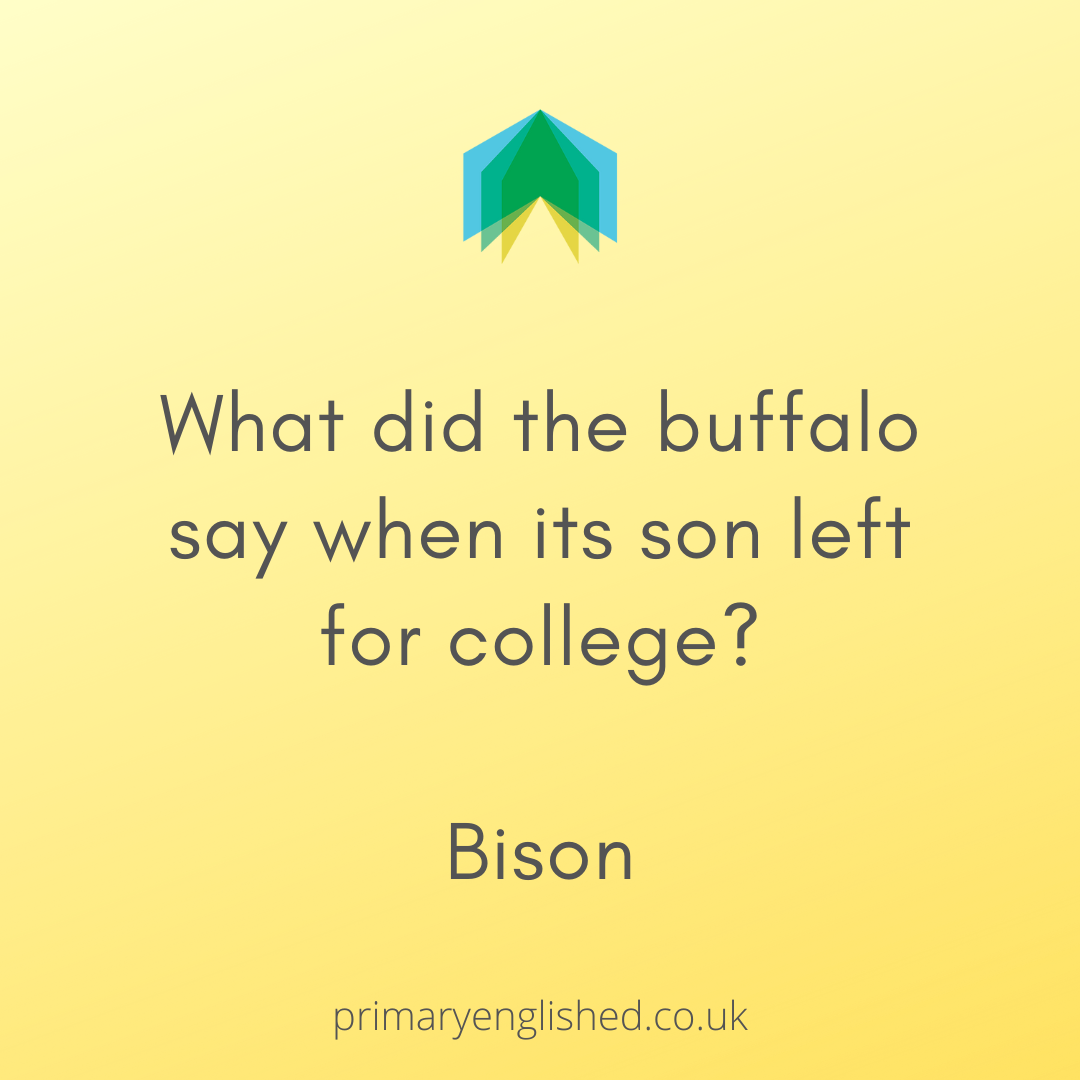Very punny vocabulary
In this post I consider the use of wordplay for building vocabulary.
I like words. There are some words that I use frequently like ‘fabulous’, ‘certainly’ and ‘education’. And then there are words that I love like ‘rambunctious’, ‘filibuster’ and ‘pearlescent’: rich words, which sound pleasing to my ear, but I use infrequently as they can only be used in specific situations. Having a good vocabulary is like this – it needs to be full of really useful words to use in everyday situations, but to be really effective must also contain less common rich words which enable clear communication in very specific situations. The 2014 National Curriculum recognises the importance of a good vocabulary and mentions it in the programme of study for reading, and writing, and of course explicitly, in Appendix 2: Vocabulary, grammar and punctuation (yes, I’ve emboldened vocabulary because appendix 2 is about more than grammar alone).
Learning academic words and rich vocabulary is important for children. However, ensuring that vocabulary teaching is more than the list-learning of words, requires creative thinking. Let me demonstrate:
Did you hear about the farmer who sprayed his chickens with perfume? He couldn’t stand the fowl smell.
I know, it’s a dreadful joke; the kind that makes you groan rather than laugh. But just pause for a moment and think about how the joke works. Like many jokes it’s a ‘play on words’; in this case a pun. It plays on ‘foul’ meaning an unpleasant smell and ‘fowl’ the domesticated birds bred for food and eggs. The words have entirely different meanings, are spelled differently, but sound the same. In grammatical terms they are homophones. In the spelling element of the 2014 national curriculum there is a requirement for children to learn to spell homophones and near-homophones from Y2 – Y6. Now of course you can set children a list of homophones to learn, test them in a spelling test or in a short piece of dictation…or…you could ask them to make their own puns. Just imagine the response of all those dads when their little offspring come home with pun homework. It’s surely a dad-joke dream come true! And creating a class ‘groanometer’ to award points for the scale of groans created by each joke could really enhance the experience of learning about homophones through wordplay. By creating their own jokes, children will not only be learning to spell homophones but also what the words mean within the correct contexts.
If you’re a follower of the Primary English Facebook or Instagram pages, you’ll know that I post something corny most Sundays. This is my personal homage to wordplay where I recognise wordplay as a key literacy skill and one that I will continue to promote. And, if you’re looking for images and cartoons to share with your class, take a look at the Primary English Pinterest page where I’ve curated a collection of puns, wordplay and other ‘funnies’ from the web.
Further articles on the Primary English website about vocabulary can be found by clicking the links below.
This article was updated in June 2022.








